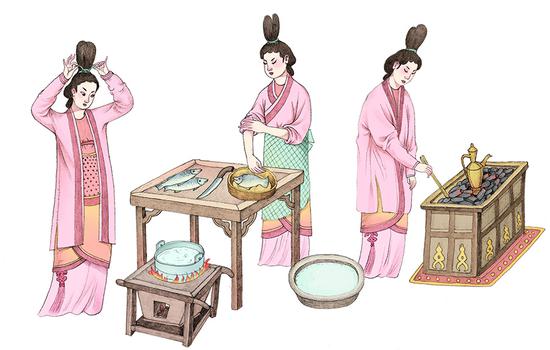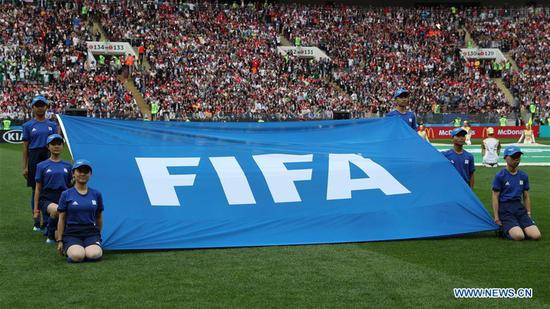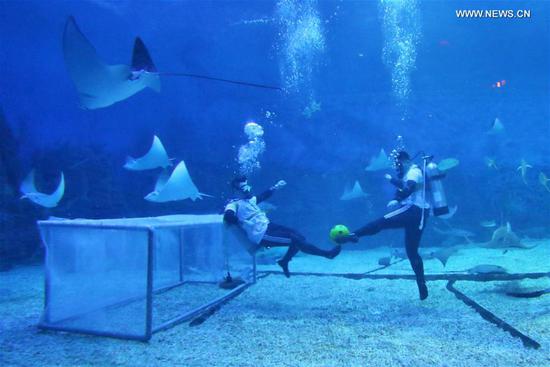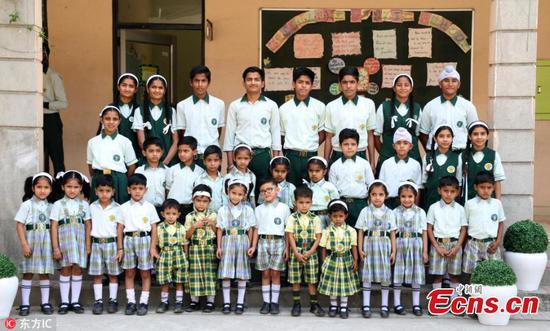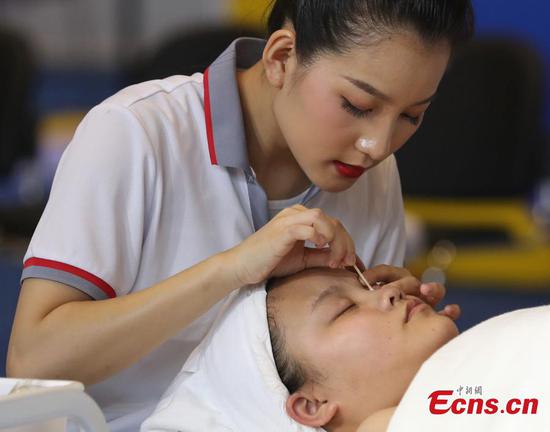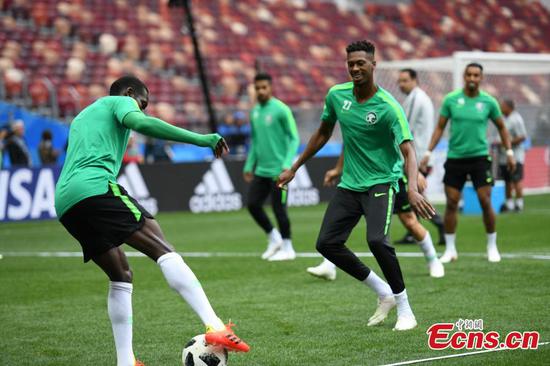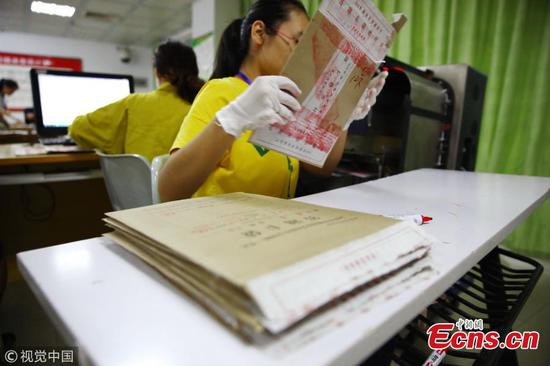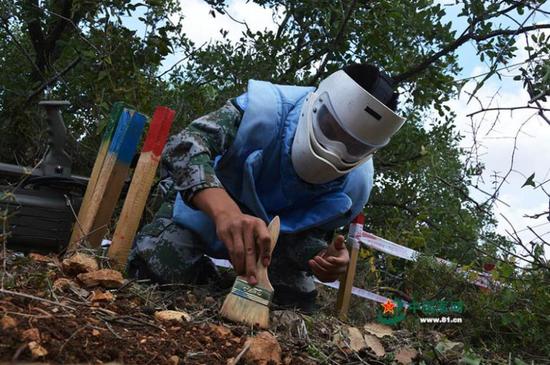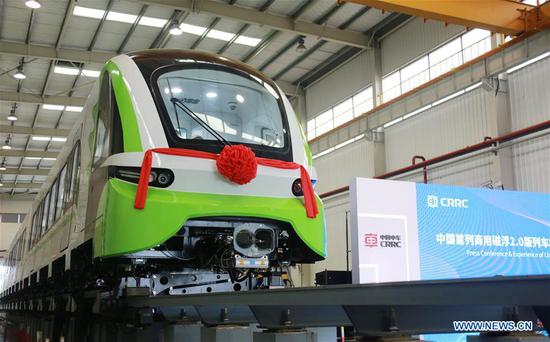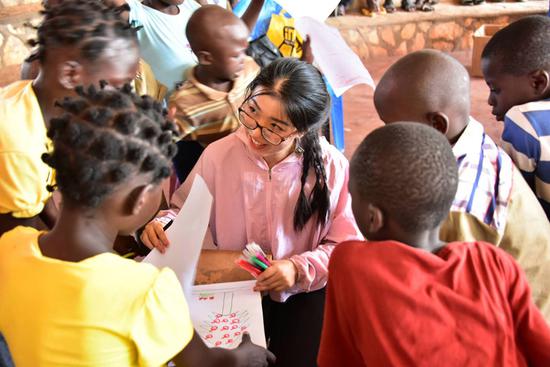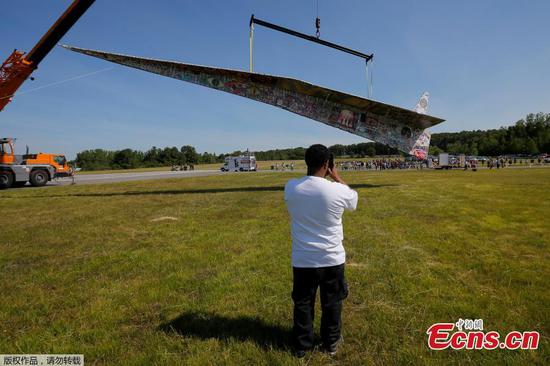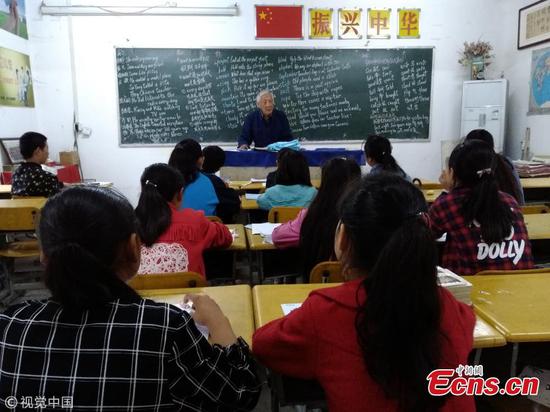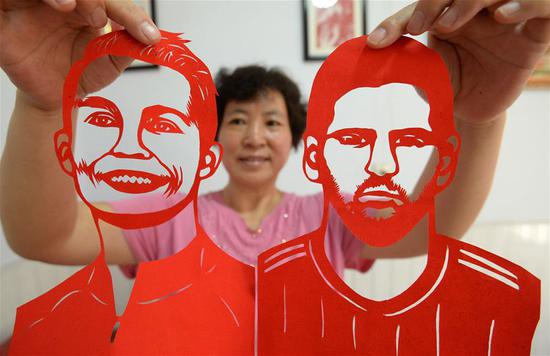Physics teacher Qiao Fucun was often puzzled by the apparent lack of filial piety he witnessed after school let out each day, as most parents would carry home their children's heavy backpacks, leaving the youngsters' hands free to fidget with electronic devices.
Qiao, 26, who teaches at Dinghui Experimental Primary School in Hangzhou, Zhejiang province, wondered why parents didn't let their children carry their own books. Nearly every parent answered the same way - the bags are too heavy.
Qiao then began to research the topic and conducted experiments on the weight of backpacks and the effect they have on students' bodies.
He chose five primary schools in Hangzhou for his experiments, sampling 240 students ranging from first to sixth grade.
Nine variables were employed, including determining each student's center of gravity and proper positioning of the backpacks, to find the right attachment point for a support strap that Qiao had designed.
The strap attached to the front of the student's belt and wrapped up around the body before being clipped to the backpack. This helped take some pressure off the shoulders.
Data analysis from the experiments showed that to control the weight of each student's backpack, the bag's weight should be less than 10 percent of their total body weight, which means a student weighing 20 kilograms can only carry a bag of 2 kg.
The innovative strap helped transfer a student's center of gravity more toward the waist and away from the upper body, and proved beneficial to overall musculoskeletal health and development, Qiao said.
The straps proved most useful if used between the third and sixth grades, as that is a key period in a child's development.
"Straps around students' waists help stimulate muscle growth during and before the period of adolescent development," he said, adding that soft-soled shoes also reduced pressure on students' feet.
Qiao plans to use his strap experiment as part of a research paper he plans to publish in the July issue of Sports Journal.
The central government launched fresh efforts to reduce the academic workload of primary and middle school students in February.
Known as "academic burden reduction", the new rules prohibit schools from using enrollment tests to evaluate prospective students, and admissions officials must also take a child's extracurricular activities into consideration during enrollment.
They also forbid after-school training institutions from engaging in exam-oriented study or hiring tutors from public schools.









